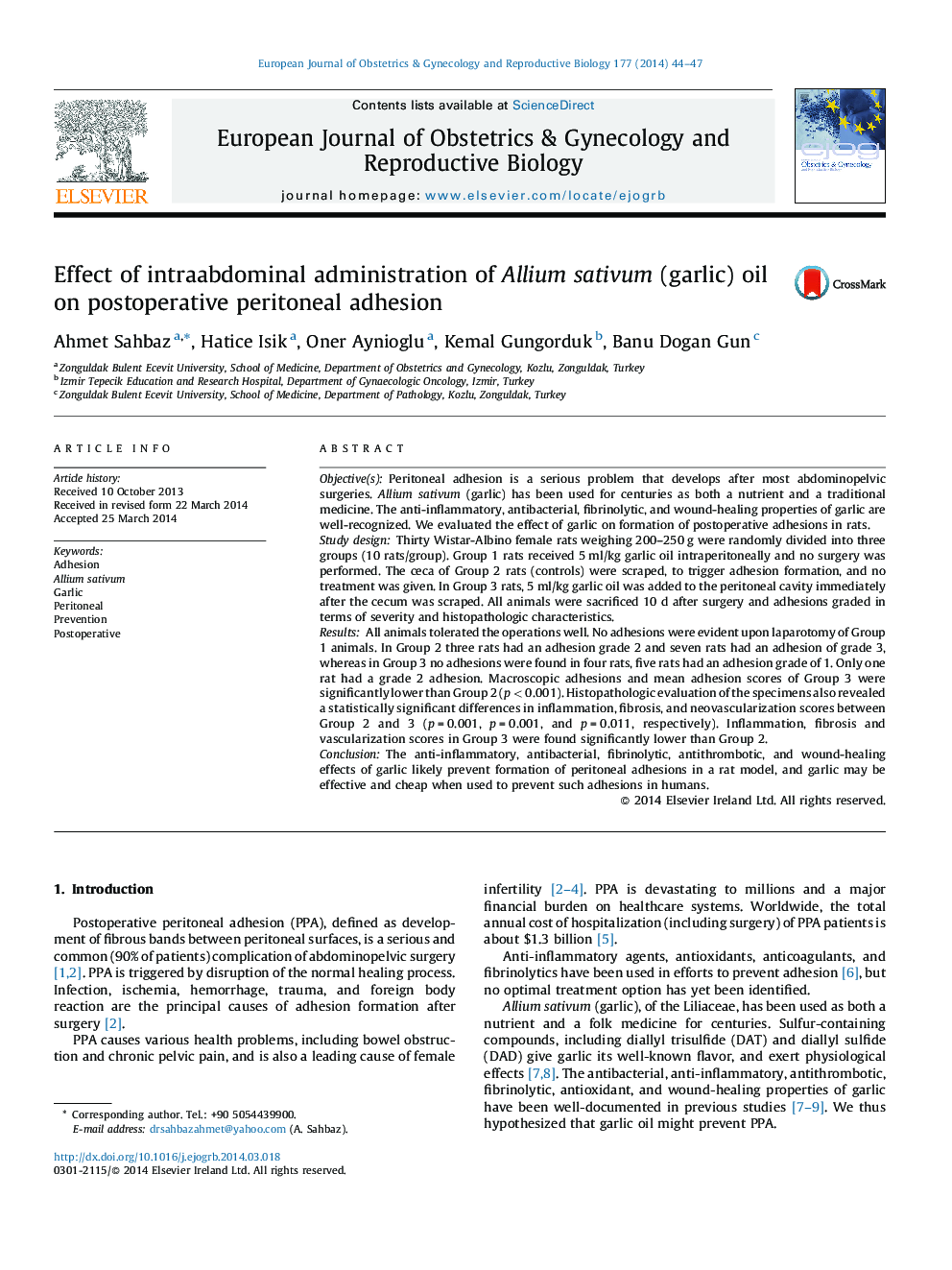| کد مقاله | کد نشریه | سال انتشار | مقاله انگلیسی | نسخه تمام متن |
|---|---|---|---|---|
| 3919874 | 1599804 | 2014 | 4 صفحه PDF | دانلود رایگان |

Objective(s)Peritoneal adhesion is a serious problem that develops after most abdominopelvic surgeries. Allium sativum (garlic) has been used for centuries as both a nutrient and a traditional medicine. The anti-inflammatory, antibacterial, fibrinolytic, and wound-healing properties of garlic are well-recognized. We evaluated the effect of garlic on formation of postoperative adhesions in rats.Study designThirty Wistar-Albino female rats weighing 200–250 g were randomly divided into three groups (10 rats/group). Group 1 rats received 5 ml/kg garlic oil intraperitoneally and no surgery was performed. The ceca of Group 2 rats (controls) were scraped, to trigger adhesion formation, and no treatment was given. In Group 3 rats, 5 ml/kg garlic oil was added to the peritoneal cavity immediately after the cecum was scraped. All animals were sacrificed 10 d after surgery and adhesions graded in terms of severity and histopathologic characteristics.ResultsAll animals tolerated the operations well. No adhesions were evident upon laparotomy of Group 1 animals. In Group 2 three rats had an adhesion grade 2 and seven rats had an adhesion of grade 3, whereas in Group 3 no adhesions were found in four rats, five rats had an adhesion grade of 1. Only one rat had a grade 2 adhesion. Macroscopic adhesions and mean adhesion scores of Group 3 were significantly lower than Group 2 (p < 0.001). Histopathologic evaluation of the specimens also revealed a statistically significant differences in inflammation, fibrosis, and neovascularization scores between Group 2 and 3 (p = 0.001, p = 0.001, and p = 0.011, respectively). Inflammation, fibrosis and vascularization scores in Group 3 were found significantly lower than Group 2.ConclusionThe anti-inflammatory, antibacterial, fibrinolytic, antithrombotic, and wound-healing effects of garlic likely prevent formation of peritoneal adhesions in a rat model, and garlic may be effective and cheap when used to prevent such adhesions in humans.
Journal: European Journal of Obstetrics & Gynecology and Reproductive Biology - Volume 177, June 2014, Pages 44–47